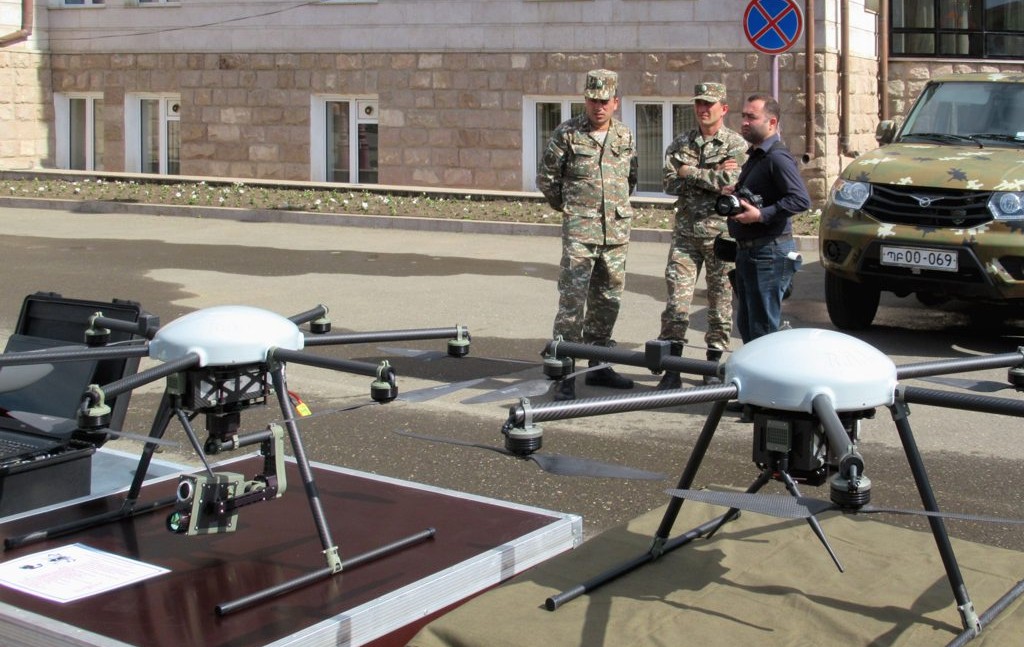Jeff Hurvitz: The new Trojan horse
In Homer’s The Iliad, there is mention of the mythical Trojan Horse used by the Mycenaean Greeks against the city of Troy during the Trojan war. Fashioned out of wood, it posed as a gift to Troy but contained an enemy whose soldiers once in the city emerged to overtake their foes. In the same manner, recent tactics used by Israel and Ukraine have created a simple manner in which to face an adversary.
On Friday, Israel gathered the fruits of a strategy that was years in the making, as drones inside of Iran attacked missile launching sites as well as trucks that transported those projectiles to their pads. It managed to further damage Iran’s already-compromised air response system. It is believed that parts which would make up those drones were transported, over time, through suitcases, then assembled by operatives inside of Iran.
On June 1, Ukraine used a surprise attack of their own against the Russian enemy. Placing drones into trucks with retractable roofs, they attacked five different Russian air bases, destroying at least 40 bombers. That was believed to be one-third of the entire fleet of missile-carrying Soviet planes.
In September 2024, pagers and walkie-talkies that were rigged to explode were sold by Israel’s Mossad agents through a third party into Lebanon and would detonate in the hands of Hezbollah enemies.
The fact that only thousands of dollars were used to render useless millions of dollars in aircraft and missiles has been quite remarkable. The concept of a Trojan Horse has further leveled the playing field of combat. These recent tactics, while used by U.S. allies, pose as a wake-up call. Is our country on the alert for similar measures which may be used against us by our enemies?
The Ukrainians dubbed the process Operation Spiderweb and involved eighteen months of planning to carry out the mission. The trucks utilized traveled thousands of miles into Russia before hitting the five air bases. Ukraine says it produced 2.2 million drones last year and have set their sights on constructing 4.5 million this year. Drone usage has clearly become a factor in warfare.
Israel’s Just completed operation was reported to be years in the formulation and carried out by their spy agency, Mossad. Last years’ campaign was five months in the planning. It involved the putting of explosive devices into the pagers and walkie-talkies and using a shell company to sell them to Hezbollah. First the pagers exploded, reportedly rendering incapacitated 1,500 enemy soldiers. Then on the next day the walkie-talkies also ignited.
The Iliad was believed to be based on a fictional account. But what’s happening in today’s world is far from fiction. Its important, especially in our country’s current budget discussions, that we maintain a top-notch military deterrent. That involves countless billions of dollars.
But with that undertaking, we cannot overlook the low-budget threats that can quickly neutralize an opponent. Realizing the concept of the Trojan Horse and considering the whole playing field of combat is nothing short of good horse sense.
Jeff Hurvitz (jrhurvitz@aol.com) is a freelance writer and native Philadelphian.





Great pun: good horse sense!
I liked your article, and you make great points about modern warfare tactics and strategy.
It should be noted that if someone wanted to cripple the United States they could start with so many soft targets… I’m not trying to supply our enemies with ideas. My point being: we are trained to think we are under constant threat despite reasonable proof. Decades ago the local news might hype one (1) snow storm a year, in the Philadelphia market. Now there are multiple storm watch/alerts warnings… for basic Summer thunderstorms. Good grief.